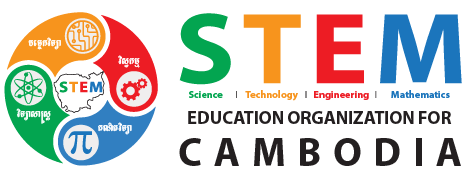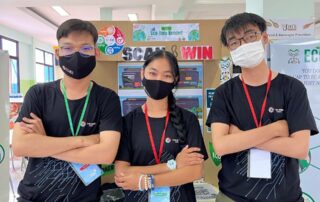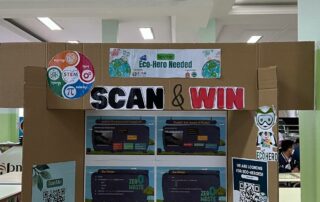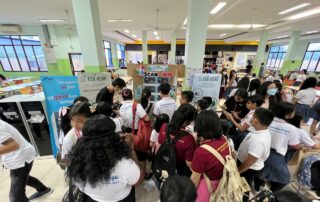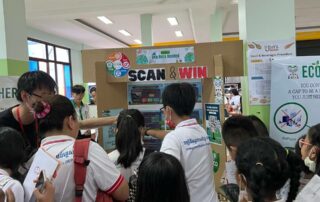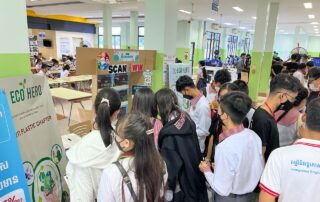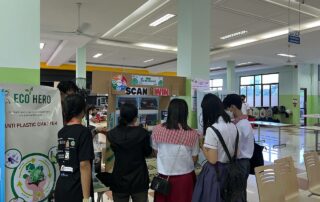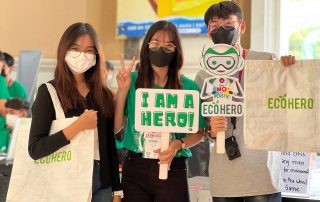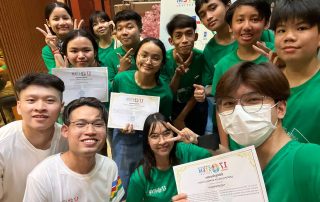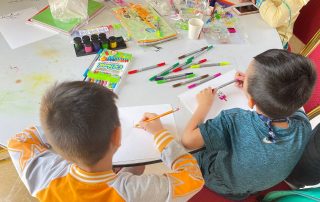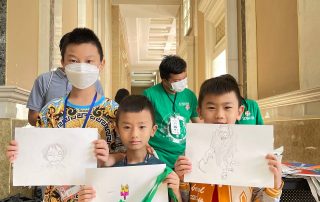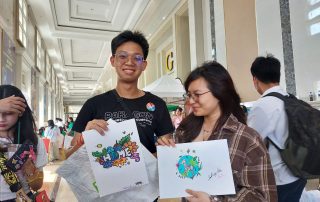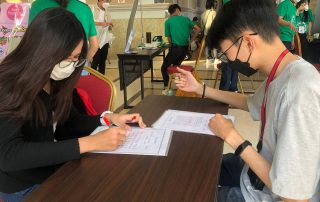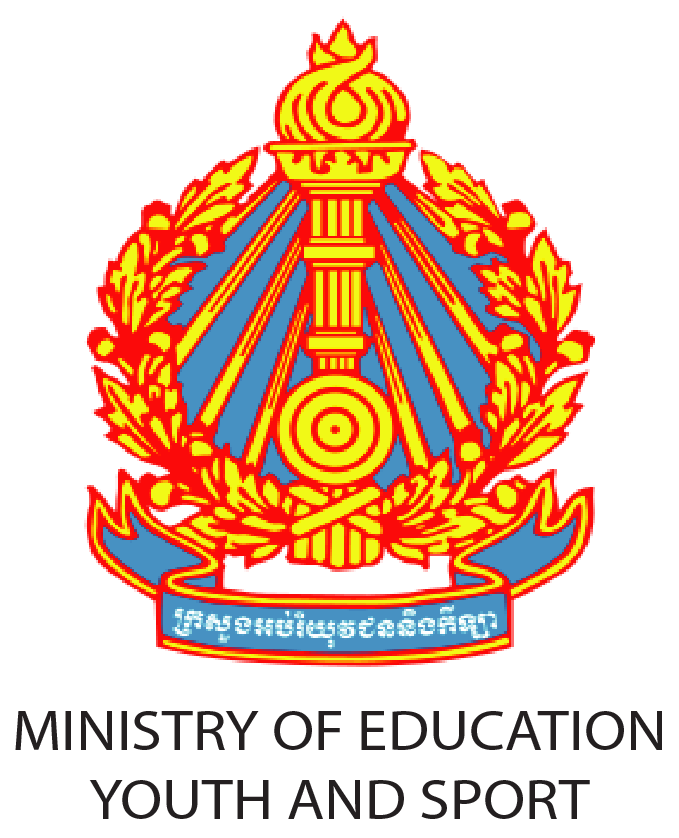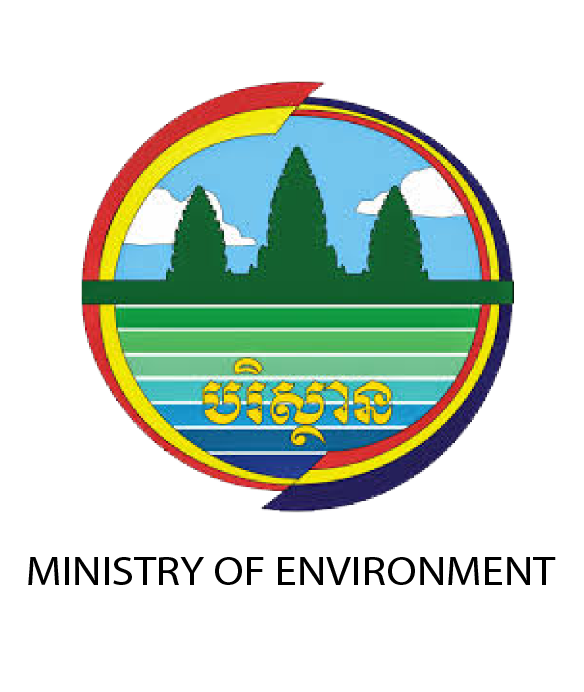
Supported By
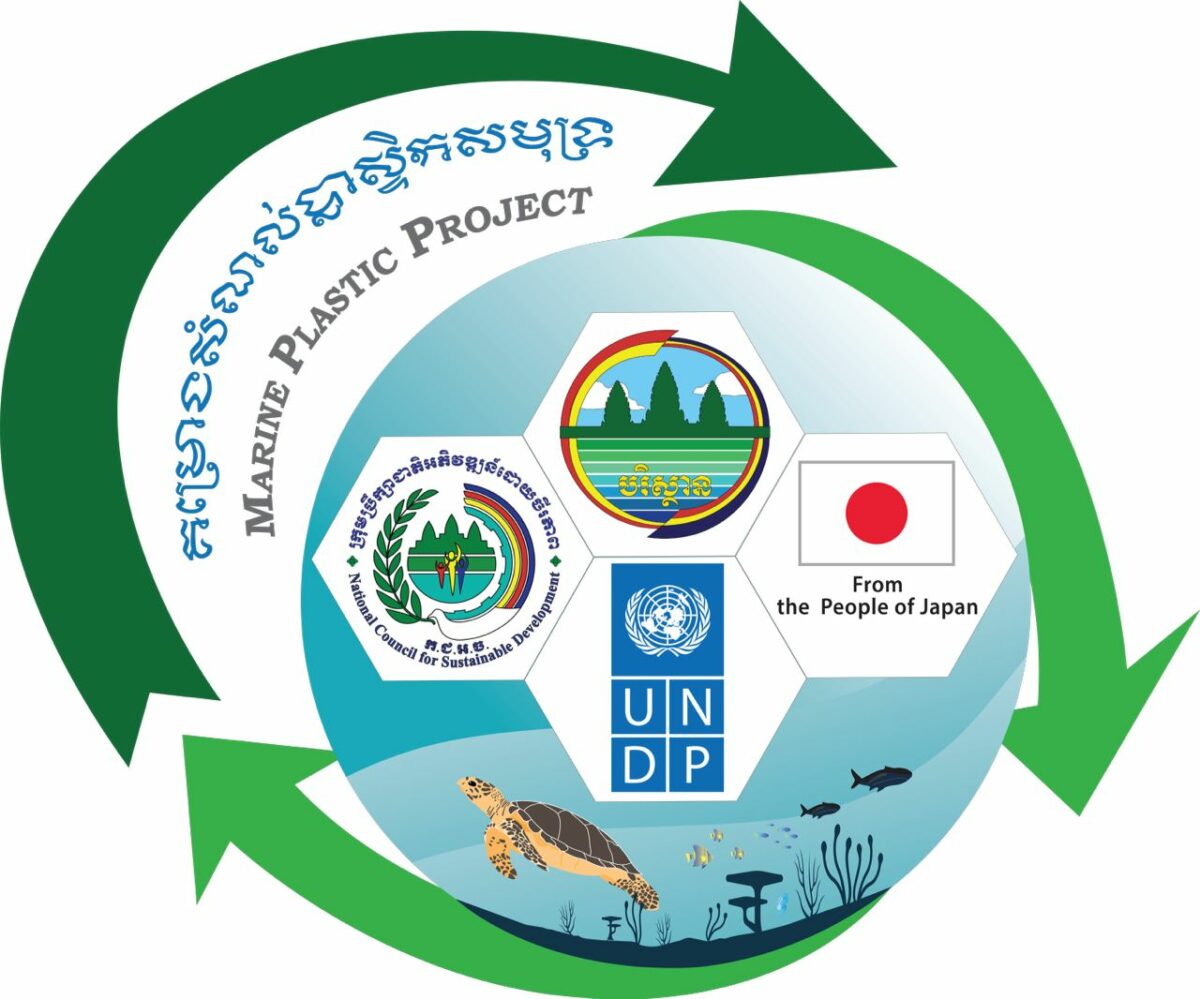
Disclaimer
Why should we care about Plastic Pollution?
Plastic has become a global crisis with production increasing exponentially from 2.3 million tons in 1950 to 448 million tons by 2015. Every year, about 8 million tons of plastic waste escapes into the oceans from coastal nations,1 most of which arrives by way of just 10 major rivers. One of them is the Mekong.
According to the MoE (2015), Cambodia generates more than 4 million tons of municipal solid waste per year, around 20 % of which is plastic waste. Out of the total waste, only 63% is collected and 8% is recycled informally while 29% is illegally dumped or burned. A significant portion of plastic waste
currently ends up in the Mekong River and eventually in the ocean. Furthermore, the recent COVID-19 pandemic crisis has led to the dramatic increase in single-use plastic (SUP) packaging for food delivery, the use of plastic made personal protective equipment (PPEs) and waste disposal.
The surge of plastic waste brings costly consequences to the country. It is estimated that USD 2.5 million is needed per year to clean up marine plastic pollution.2 Major cities and provinces such as Phnom Penh and Sihanoukville3 are severely affected by increased flooding risks since plastic waste blocks waterways and clogs sewage and drainage systems. In coastal areas, impacts of plastic waste to the tourism industry are particularly significant. In Sihanoukville, for example, nearly 80% of debris found on beaches is plastic which deteriorates its natural environment, marine ecosystems, and scenery (FFI, 2020). Plastic also heightens public health risks as burning plastic releases harmful chemicals into the atmosphere. Moreover, microplastic eaten by fish passes through the food chain that can also adversely affect the health of Cambodians since fish comprises more than 60% of their protein intake.
Why should you join STEM Eco-Hero: Beat Plastic Chapter?
This campaign is an extension of a program called Eco-Heroes, created by STEM EOC in 2018. Eco-Heroes program aims to create awareness about how small changes in our daily habits can have drastic effects on the environment. The Eco-Hero who joins this chapter will be asked to submit a pledge
to change one of daily habits to mitigate the pollution. One of those daily habits must aim to reduce the consumption of single-use plastic, which is the main source of plastic pollution. The Eco-Heroes of this chapter will also undergo training to understand the harmful effects of plastic. They will later become part
of the Eco-Heroes team whose task is to save the environment using their STEM knowledge. They can work with other chapters of Eco-Heroes, which will be guided and supported by STEMEOC.
STEM Eco-Heroes: Beat Plastic Chapter aims to become a non-partisan and gender inclusive community where everyone, especially (junior) environmentalists, can come together to transform themselves into a more environmentally aware citizen. They are expected to develop a sense of responsibilities and skills to tackle environmental issues caused by plastic pollutants. These Eco-Heroes are going to be the agents of changes and the agents to create awareness, about plastic pollution- in their families and communities.
These Eco-Heroes are coming from various backgrounds and will be contributing to all sectors in Cambodia’s economy and more importantly the decision makers on how to handle the current plastic pollution that we are going through.
The Eco-Heroes will be the promoters and role models of a community of responsible single-use plastic users. We all have to accept that the convenience and low-cost of the single-use plastic has allowed so much integration of plastic into our lives. However, if we have a great sense of responsibility in consuming those single-use plastics, we are going to become part of the solutions.
How do/can we become a more responsible plastic consumer?
Since 2018, the Royal Government of Cambodia (RGC) has promoted the 4Rs (Refuse, Reduce, Reuse, and Recycle) framework.
4Rs:
- Refuse (បដិសេធ)
Example:
Bora is not accepting any single-use plastic bags to carry his groceries from stores.
Neary is not buying any drinks that use single-use plastic packaging.
Kanha is not using any single-use plastic straws to consume her drinks. - Reduce (កាត់បន្ថយ)
Example:
Sokha chooses to use multi-use Eco-bags to carry her groceries rather than asking for the single-use plastic bags provided by the vendors.
Minea chooses to use her metallic and reusable utensils rather than single-use plastic utensils to consume her food.
Korona choose to use reusable food containers rather than single-use styrofoam food containers - Reuse (ប្រើឡើងវិញ)
Seiha is joining an art and crafting club to learn about how to design using single-use plastic water bottles.
Mesa is collecting plastic fiber (clothing) to produce costumes for her school costume design contest. - Recycle (កែច្នៃឡើងវិញ)
Ratana pledges to help his mother separate composable, metallic, combustible and plastic
waste coming out of their home.
By practicing these 4Rs above, we all can contribute to reduction of the single-use plastic build-up problems in our community.
It is up to us to keep our community CLEAN and PLASTIC FREE!
Become an Eco-Heroes by pledges:
● To not use single-use plastic straw
● To use my tumbler when buying drinks
● To use multi-use raincoat
● To not throw plastic into the river or ocean
● To pick up any plastic and throw it into trash can
● To learn how to make arts and crafts from used plastic waste
Eco Heroes – Logo Contest – Winners
1st Winner

School : New Gateway International School
Grade: Secondary From-4
Topic: Logo Design/Slogan including the 4Rs (Refuse/Reduce/Reuse/Recycle)
Student Names:
- Mr. Sophorn Rotanak
- Mr. Sovan Panhassak
- Ms. Ngin Nimol
- Mr. Uk Onnoel
2nd Winner

School : N/A
Grade: N/A
Topic: Logo Design/Slogan including the 4Rs (Refuse/Reduce/Reuse/Recycle)
Student Names:
- San Sokun Hannah
3rd Winner

School : N/A
Grade: N/A
Topic: Logo Design/Slogan including the 4Rs (Refuse/Reduce/Reuse/Recycle)
Student Names:
- Ny Meaneat
